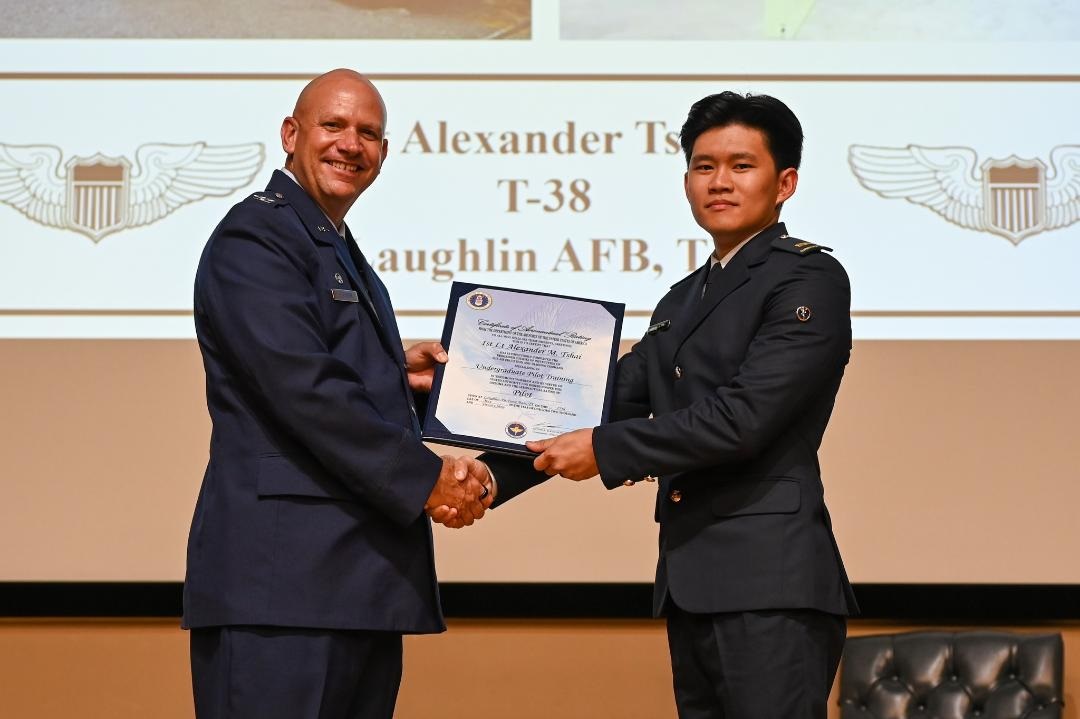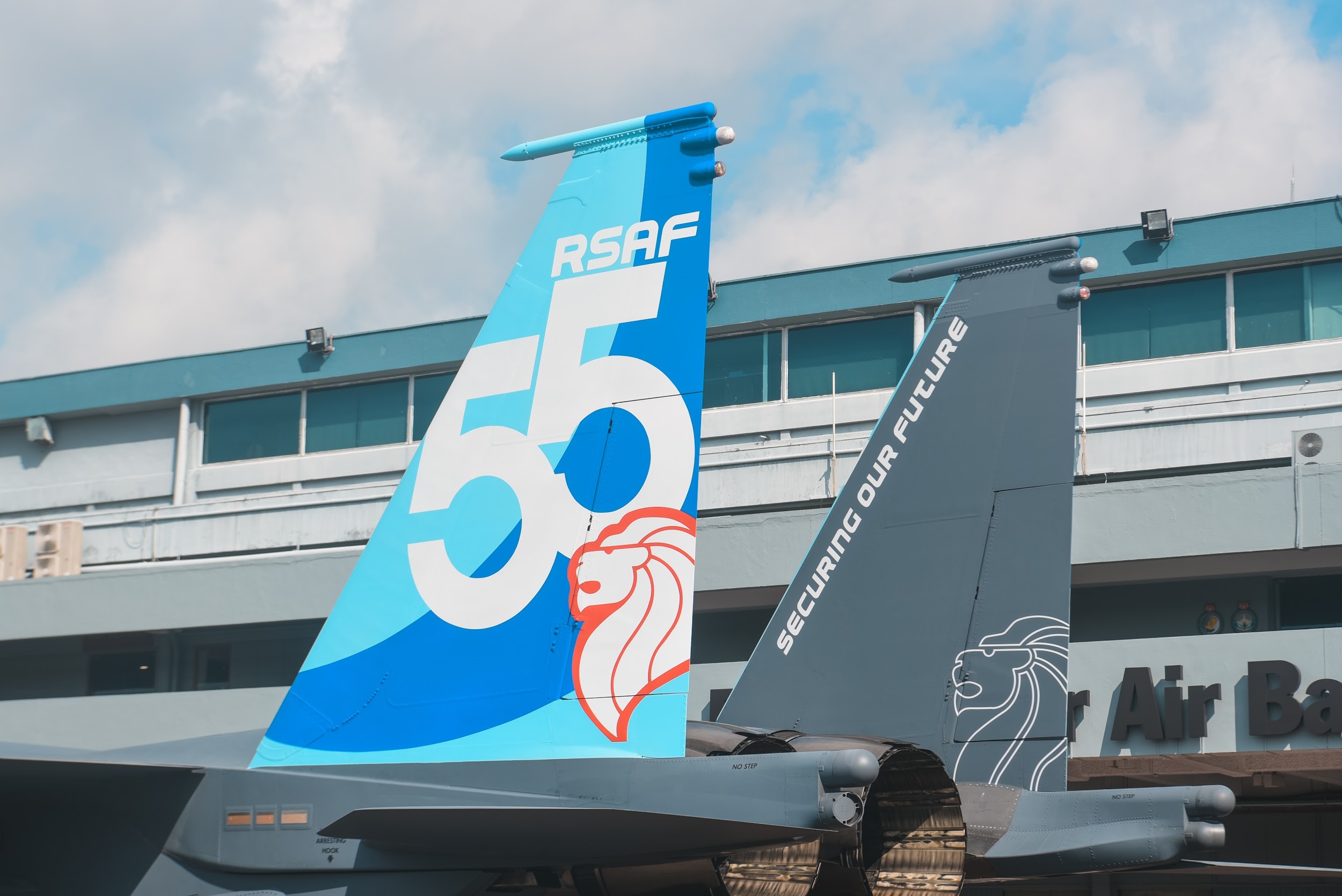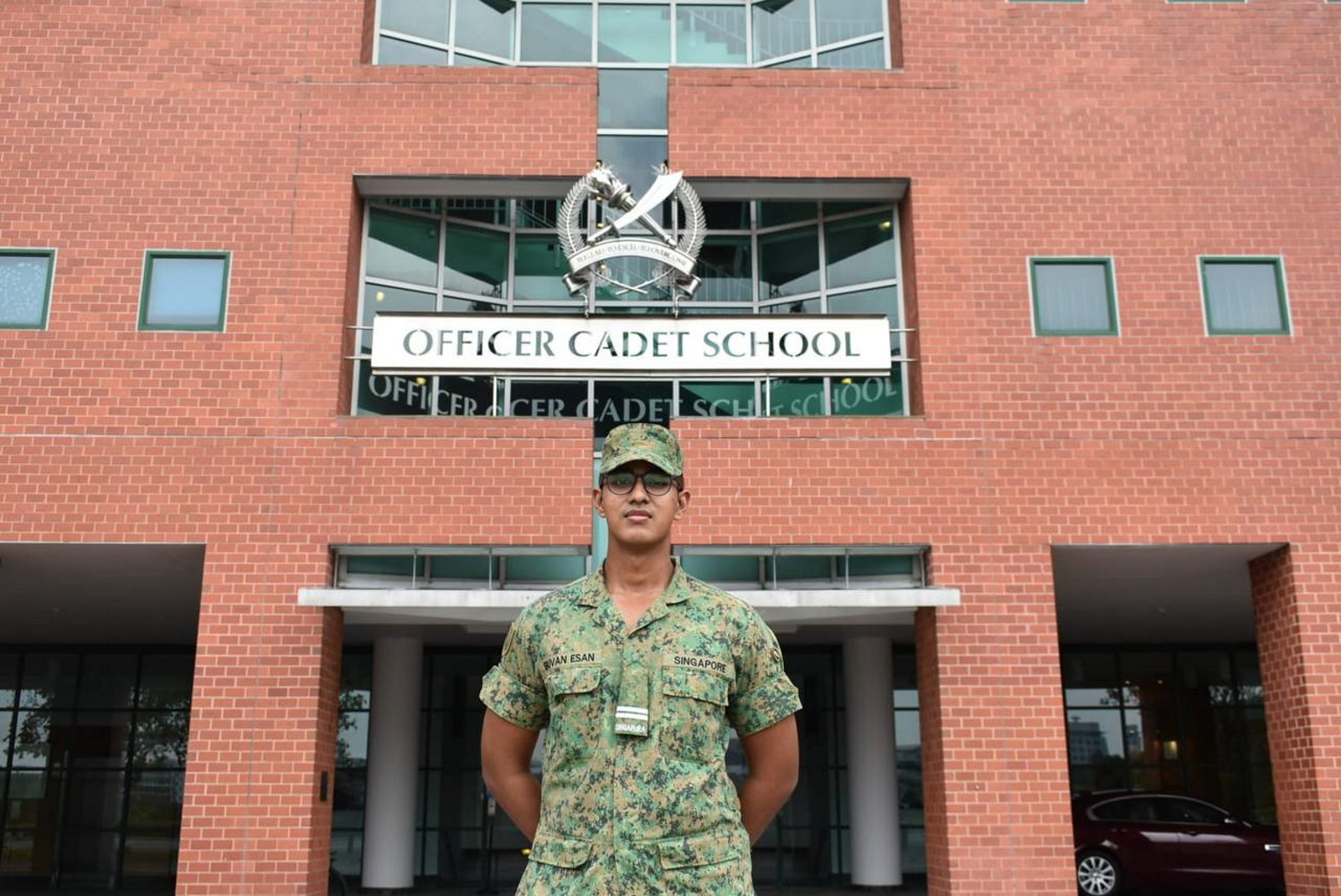 "> OCT Buvan Esan at Officer Cadet School (OCS)
"> OCT Buvan Esan at Officer Cadet School (OCS)
 “If not me, then who?” – OCT Buvan Esan
“If not me, then who?” – OCT Buvan Esan
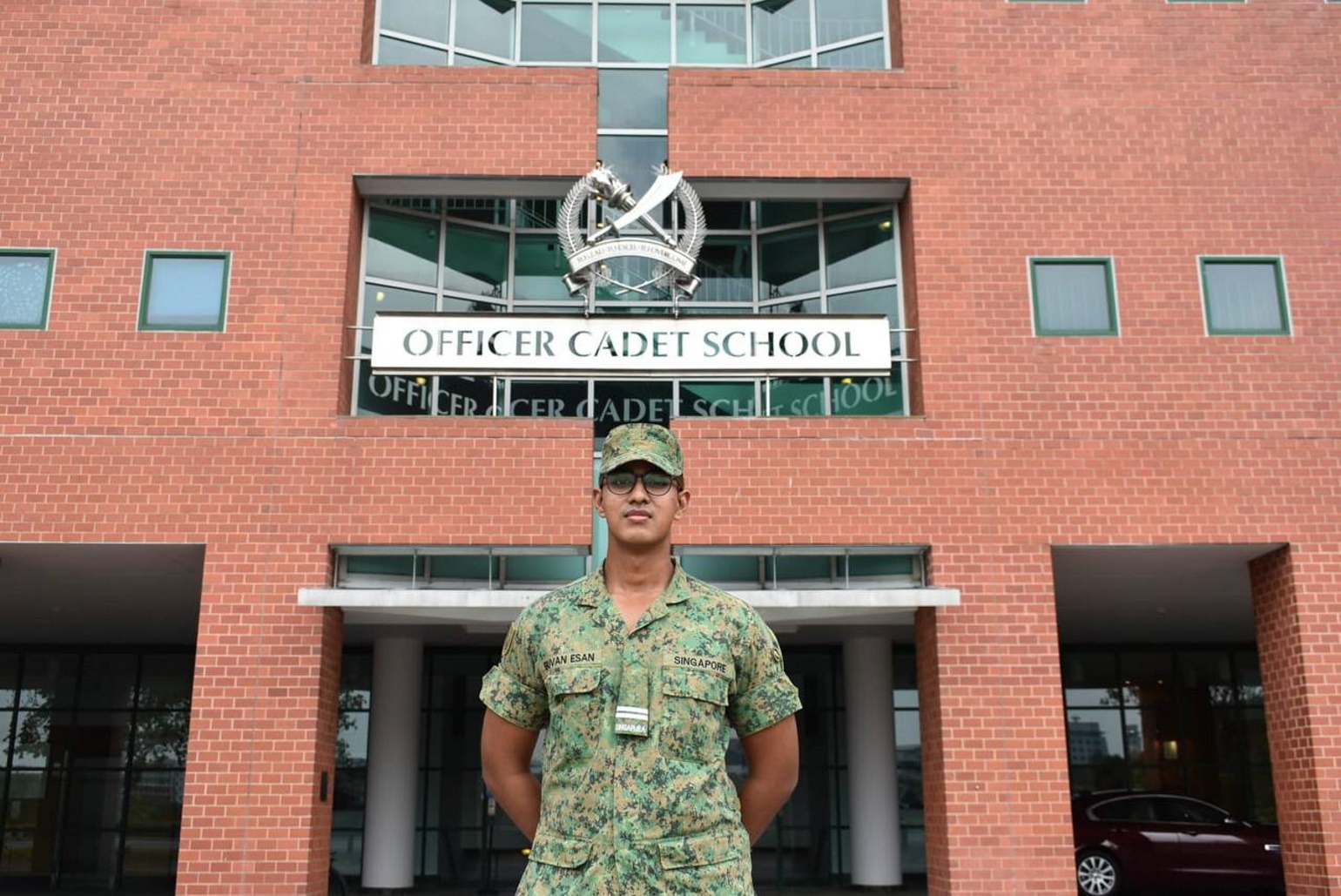
 "> OCT Buvan Esan at Officer Cadet School (OCS)
"> OCT Buvan Esan at Officer Cadet School (OCS) Officer Cadet Trainee (OCT) Buvan Esan may not consider himself valiant, but his recent act of courage speaks for itself.
On a Sunday evening in October 2021, whilst en route to camp, a loud bang and piercing screech sent OCT Buvan rushing in the opposite direction – towards a traffic accident that had occurred at a nearby road junction. Within a minute, he had made his way next to a motorcyclist lying motionless in the middle of the road.
“At that moment, I had to put all my emotions aside,” OCT Buvan said. “All I could think of was to do whatever I can so that he had a fighting chance to live.”
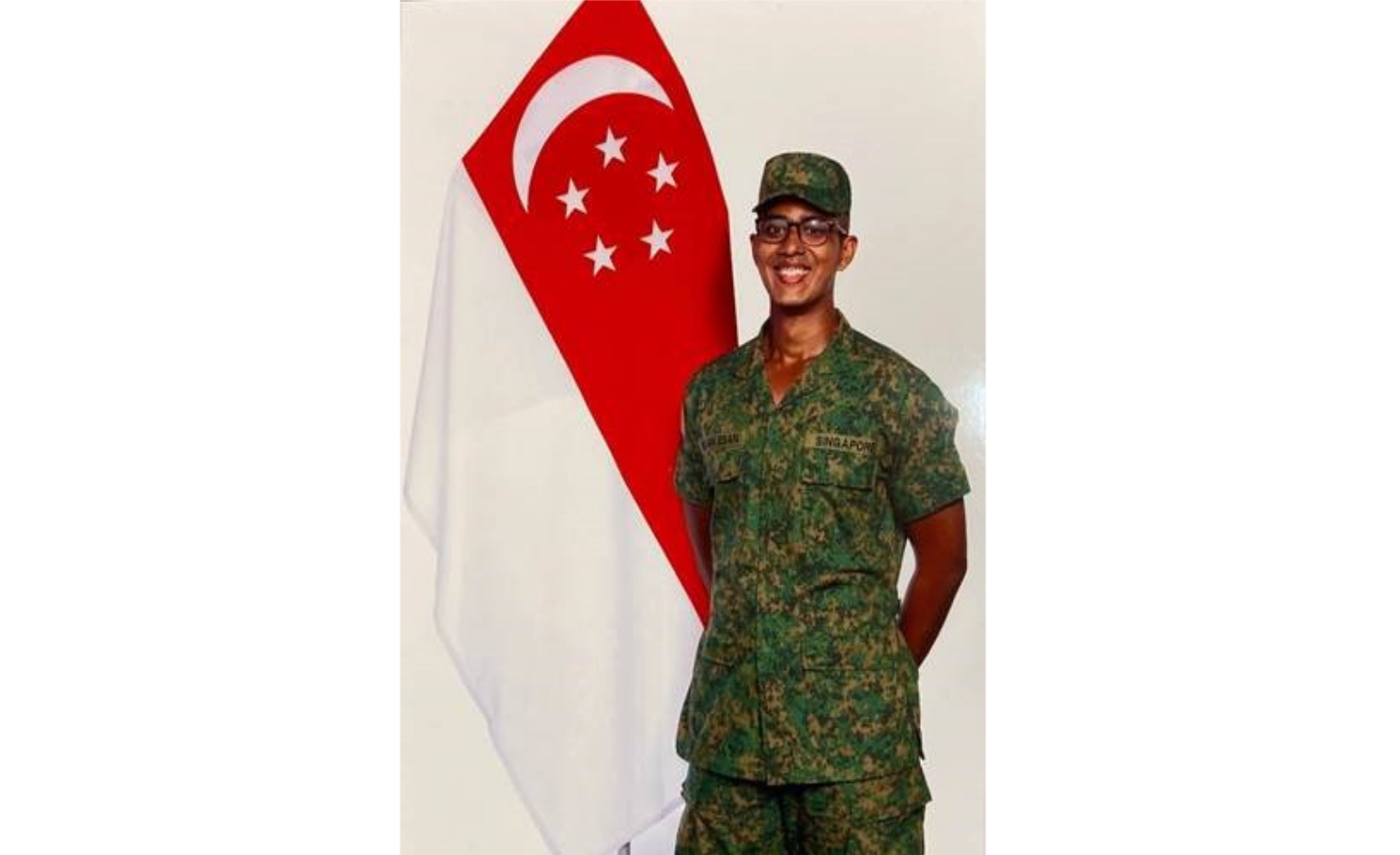
OCT Buvan at his Passing Out Parade (POP)
The 21-year-old officer cadet trainee acted instinctively and methodically, proceeding to check on the motorcyclist’s injuries before making a pillow for him out of a clean towel and t-shirt. Aside from attending to the motorcyclist’s injuries, he also rallied the help of onlookers and contacted the motorcyclist’s family members to inform them of the situation.
OCT Buvan’s instinctive nature and composure earned the praise of the motorcyclist’s sister, who said he was “calm, caring, selfless and showed compassion in every way possible”.
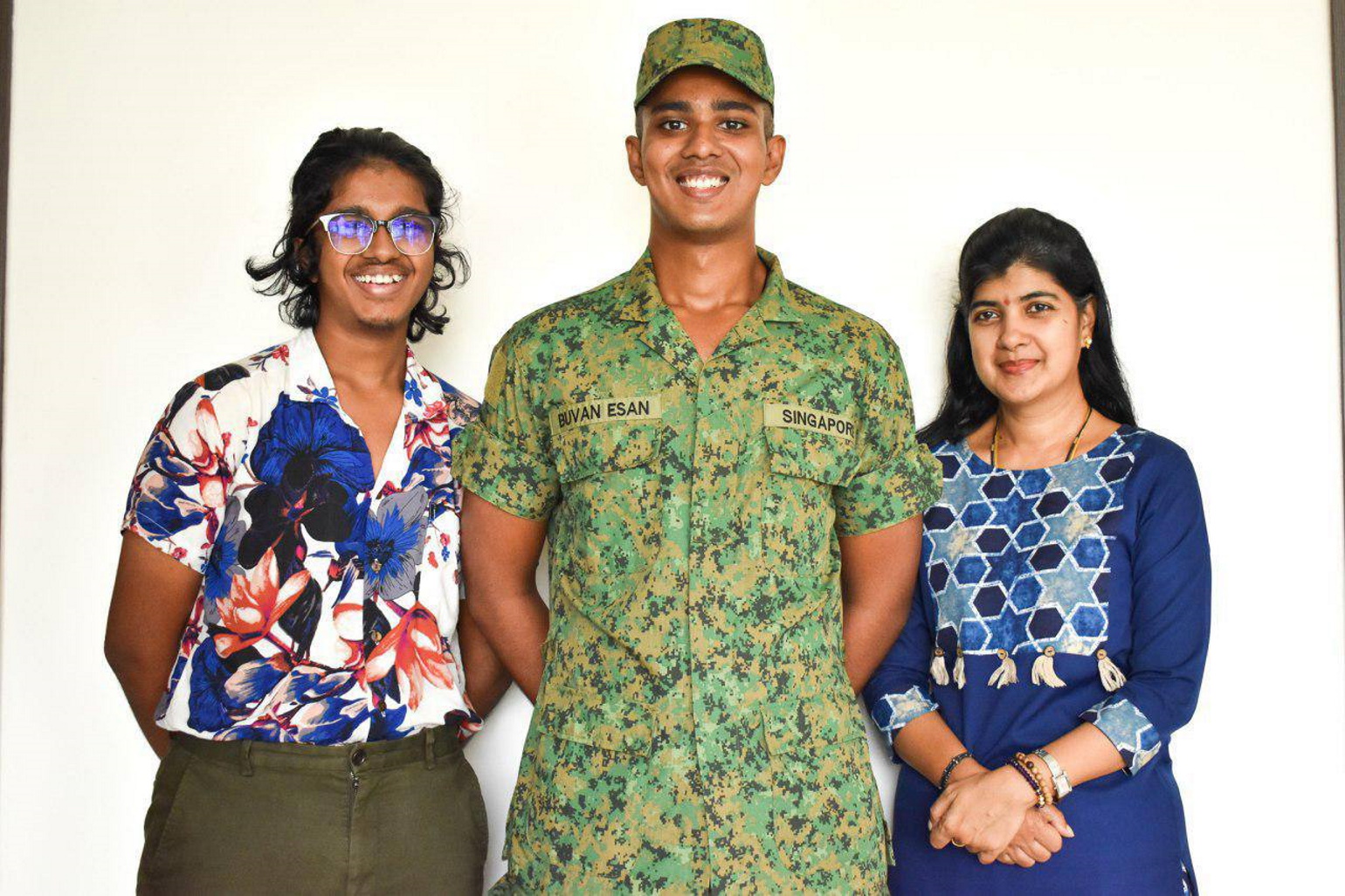
OCT Buvan (centre) with his younger brother (left) and mother (right)
“I told my family about the accident the next day,” he shared. “My mother was very proud of me and concerned for the motorcyclist too.”
OCT Buvan is currently in the midst of training to be an Unmanned Aerial Vehicle (UAV) pilot, and an officer of the Republic of Singapore Air Force (RSAF). To recognise his selflessness and propensity to help, the Officer Cadet School (OCS) recently awarded him with a Letter of Commendation.
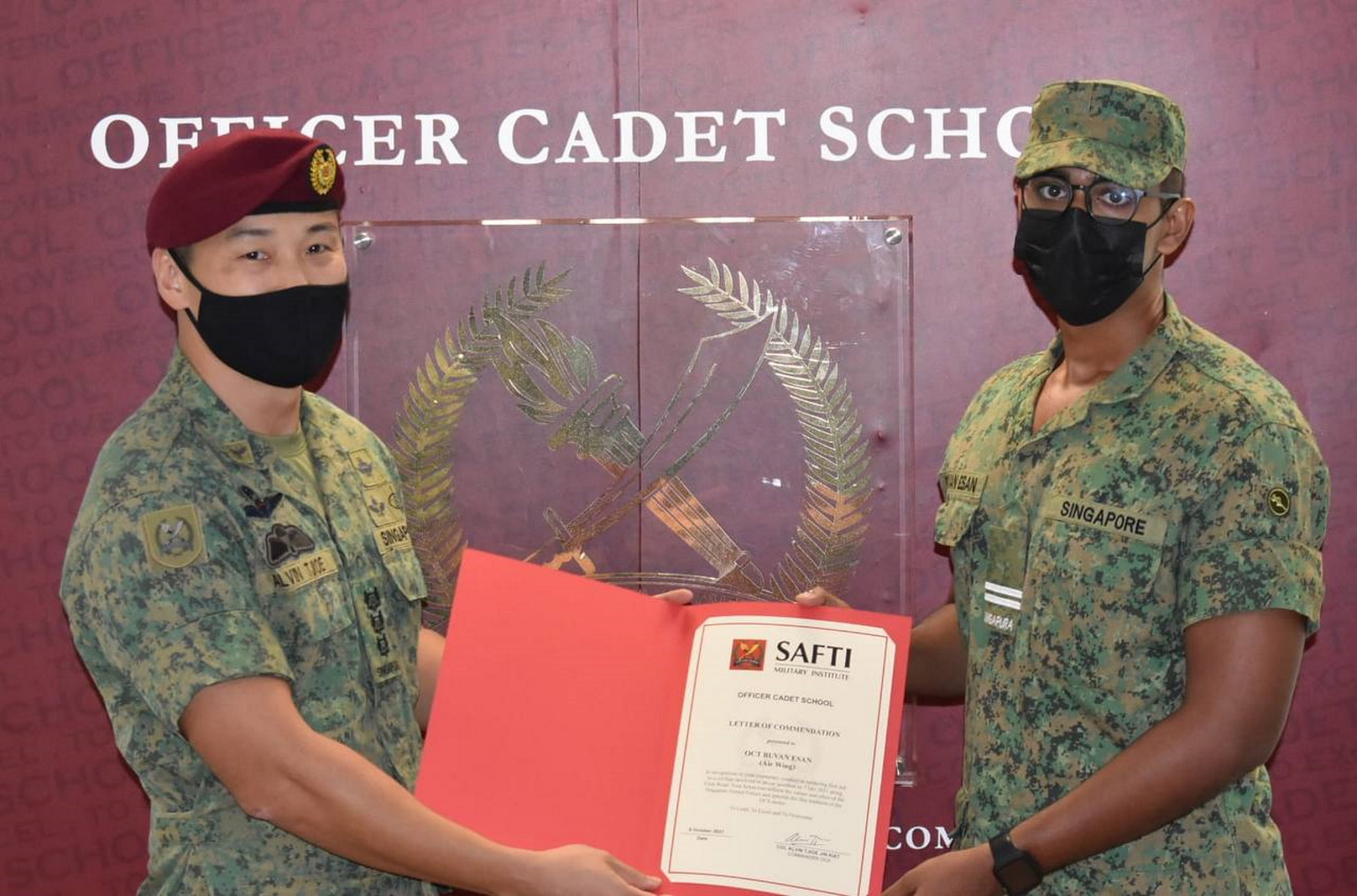
OCT Buvan (right) receiving a Letter of Commendation from Commander OCS COL Alvin Tjioe (left) for assisting in the traffic accident
We had the opportunity to catch up with OCT Buvan, who told us more about his experience:
- What made you stop and assist in the traffic accident that day?
When I saw that the motorcyclist was so badly hurt, I recall looking around and thinking: “If not me, then who?”. I felt that I knew how to help in some ways – just the basic things – so I did.
The first thing I saw when I got to him was that his eyes were open and he was slightly conscious, then I went ahead to check for injuries and where the bleeding was coming from. I also checked on him using the AVPU (Alert, Verbal, Pain, Unresponsive) scale and kept him awake by engaging him while waiting for the paramedics to arrive.
To me, as a Singaporean, I was doing my part to serve the community and as an RSAF airman, I was doing my part to serve the people of my nation.
- How did you manage to apply what you learnt in training to this experience?
One of the things that we’ve learnt in the Singapore Armed Forces (SAF) is to carry out drills that mimic such situations and we must react very quickly. We also enforce the AVPU scale which trains us to be quick, responsive, and assertive when necessary.
Additionally, I managed to put my basic first aid skills and situational awareness to use by being mindful of my surroundings and looking out for any help that I could get. Like training in the RSAF, aside from the task at hand, I had to think ahead to the next few steps.
- How do you think this experience will be helpful in the future?
I am able to better understand that having a sense of urgency can potentially save lives and that having compassion is vital. At that point of time, I didn’t care about who he was or what role he played in the accident; he was hurt, so I went straight to him.
Looking back, I trust that what I’ve learnt from this experience will come in handy, as I believe in the aim to serve and protect!


